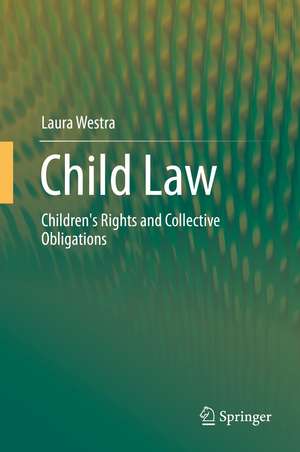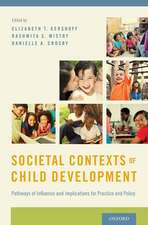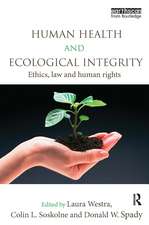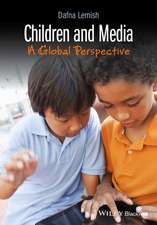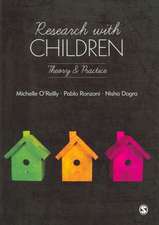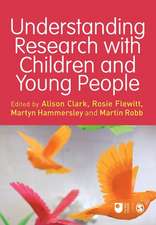Child Law: Children's Rights and Collective Obligations
Autor Laura Westraen Limba Engleză Hardback – iul 2014
| Toate formatele și edițiile | Preț | Express |
|---|---|---|
| Paperback (1) | 635.31 lei 6-8 săpt. | |
| Springer International Publishing – 23 aug 2016 | 635.31 lei 6-8 săpt. | |
| Hardback (1) | 641.53 lei 6-8 săpt. | |
| Springer International Publishing – iul 2014 | 641.53 lei 6-8 săpt. |
Preț: 641.53 lei
Preț vechi: 754.74 lei
-15% Nou
Puncte Express: 962
Preț estimativ în valută:
122.77€ • 127.70$ • 101.36£
122.77€ • 127.70$ • 101.36£
Carte tipărită la comandă
Livrare economică 14-28 aprilie
Preluare comenzi: 021 569.72.76
Specificații
ISBN-13: 9783319050706
ISBN-10: 3319050702
Pagini: 192
Ilustrații: XIII, 178 p. 5 illus., 4 illus. in color.
Dimensiuni: 155 x 235 x 16 mm
Greutate: 0.45 kg
Ediția:2014
Editura: Springer International Publishing
Colecția Springer
Locul publicării:Cham, Switzerland
ISBN-10: 3319050702
Pagini: 192
Ilustrații: XIII, 178 p. 5 illus., 4 illus. in color.
Dimensiuni: 155 x 235 x 16 mm
Greutate: 0.45 kg
Ediția:2014
Editura: Springer International Publishing
Colecția Springer
Locul publicării:Cham, Switzerland
Public țintă
ResearchCuprins
Who is a Child? The Protection of Children’s Rights.- The Child’s Life, Health and Development Rights.- The Child’s Right to Non-discrimination.- Child Law in the International Context: Exploitation, Abuse and The Limits of Labour Laws.- Child Law: Conflicts, Violence and Forced Displacement.- Concluding Thoughts: Progress in the Protection of the Child .
Textul de pe ultima copertă
Child Law starts with the question “Who is the Child?” In direct contrast to the CRC, which calls for putting the interests of the child first in all policies dealing with children, it appears that the interests of others are the major consideration de facto. In law, children’s right to protection is severely limited by the presence of a maximum age limit, with no consideration of the starting point: current and ongoing scientific research has demonstrated the effects of this non-consideration in a number of abnormalities and diseases, not only in children, but in adults and the elderly. The WHO has published a number of studies to that effect, and the 2012 Report on Endocrine Disruptors more than confirms this claim. This and other scientific insights that have largely been ignored show the flaws and inadequacies of the legal regimes intended to protect children, in a number of areas, from the basic public health to the right to normal development; child labor law conventions; in conflict situations; as a result of climate and other events; children as illegal migrants; and as inmates in prison camps.
Caracteristici
Expands on the 2006 UNICEF Report’s contention that children are “invisible” in law and policy Based on the implications of children’s specific biology and their vulnerability in relation to industrial developments, conflicts and climate change Discusses the discriminatory component to be found in many laws intended to protect children, which significantly limits their effectiveness
